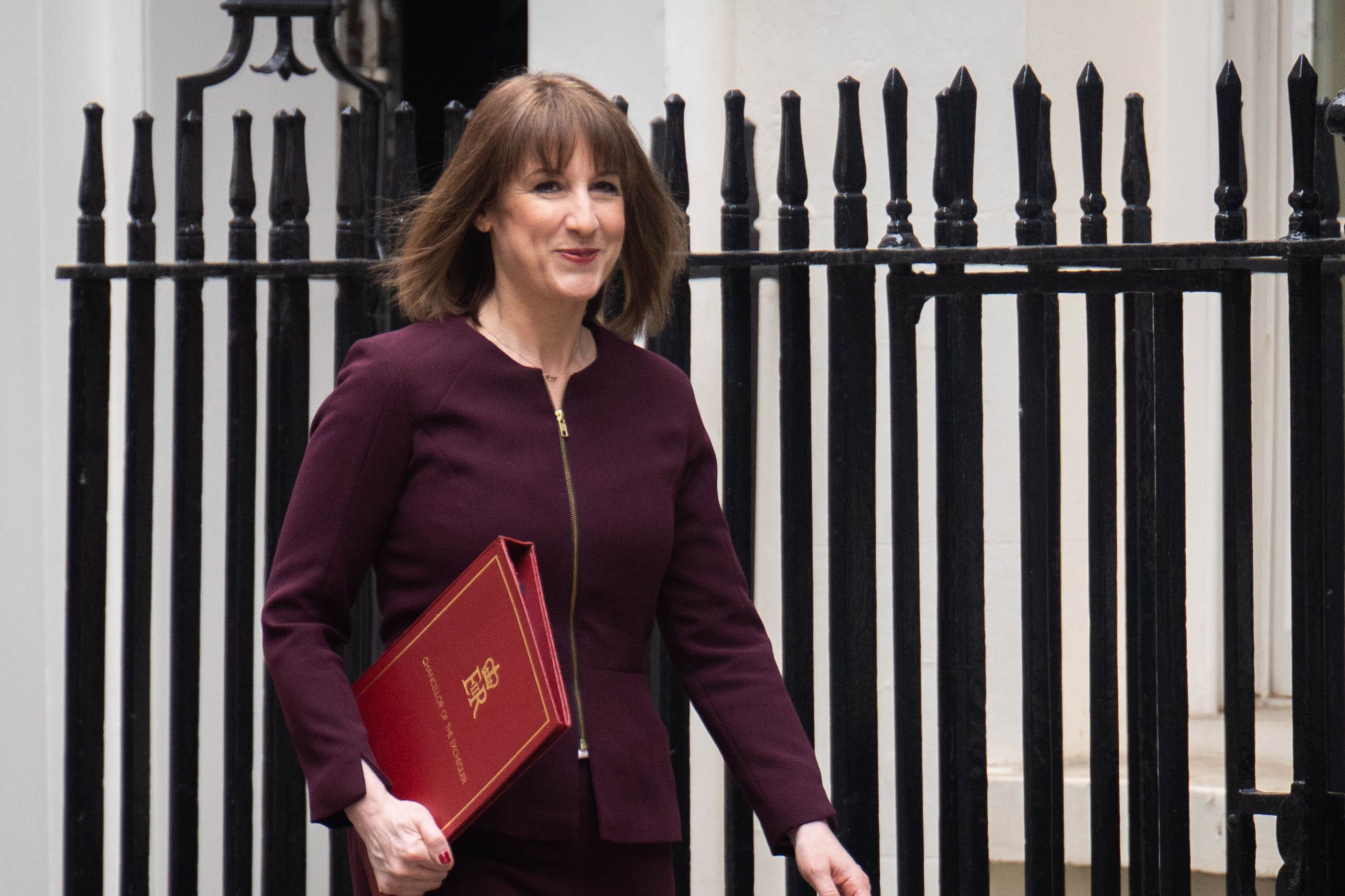‘Security’ is a sound enough slogan – but can Labour deliver it?
With some unwitting help from Trump and the chaos his tariffs have caused, Labour has a coherent message to tie its policies together, writes Andrew Grice. But the dire fiscal predicament outlined by the IMF means it will need more than slogans to cut through to voters

As she arrived in Washington for the International Monetary Fund’s spring meetings, Rachel Reeves pledged that the government would protect “people’s security” in an unsettling, changing world. She also used another s-word – not socialism, but stability – as a promise to businesses also worried about the uncertain new world.
During her three days in Washington, the chancellor will hold her first face-to-face meeting with Scott Bessent, the US Treasury secretary, to try to push a US-UK trade agreement towards the finishing line. However, she also vowed to strike more trade deals and partnerships with other countries – like those in the Pacific and Europe – in a barely coded message that Donald Trump’s tariffs are bad for everyone. The IMF underlined that point in its latest forecast.
“Security” is a word that peppers Keir Starmer’s speeches. Ministers repeatedly use slogans such as “strength abroad and security at home” and “securing our future”. Their pre-election promise to tackle “an age of insecurity” has taken on a new significance and importance – what they privately call “Trumpworld”.
And “Security” works at several levels. The UK will agree a defence cooperation deal with the EU next month. The government is increasing defence spending as Europe takes responsibility for its own security to combat the threat from Russia.
Starmer is a trusted player on the world stage. He and Emmanuel Macron, the French president, are working hand in glove on Ukraine. Today’s conference in London on a possible ceasefire should have been a reminder of the UK’s status. But the US went and spoiled it all when Marco Rubio, the secretary of state, and Steve Witkoff, Trump’s envoy for all seasons, unexpectedly pulled out – a reminder of who is calling the shots.
Labour’s number one priority is to raise real household disposable income– more voter-friendly than its previous headline pledge to achieve the highest growth in the G7. (The revised one could be made possible by an above-inflation rise in benefits or the national minimum wage in the run-up to the next election). A more interventionist industrial policy is designed to help deliver economic security in a turbulent world; the government’s decision to take control of British Steel is a down payment on a long-awaited industrial strategy coming in June, which is fast evolving and will now be more vital than ever.
Job security for those in precarious work will be enhanced by legislation improving workers’ rights (even though business worries it will harm economic growth). A 6.7 per cent hike in the minimum wage took effect this month.

Energy security, by boosting renewables to make the UK less dependent on imports, will be pledged by Ed Miliband at an international energy summit in London tomorrow – though real security will be achieved only by lower bills for households and business. Ministers also promise security on crime, through more neighbourhood police officers, and “border security” – but tackling illegal migration is still a work in progress.
In the global economy, security means stability. Labour ministers hope to convince the financial markets and investors that the party’s huge majority and the certainty of another four years in power make the UK a safe haven which can weather the global storms whipped up by Trump.
Labour MPs, who were clamouring for a stronger narrative after the woeful lack of a coherent message during the government’s wobbly start, like the security theme. “It chimes with what the public wants and so may eventually pay dividends,” one told me. Privately, Labour MPs worry there is still a gap between what the government is offering and what voters actually feel; Joe Biden’s disastrous experience offers a stark lesson.
The cost of living crisis is far from over and is still the most important issue for the public. The proposed cuts to disability and sickness benefits are not going to make people feel more secure (any more than means-testing the pensioners’ winter fuel allowance did). Ministers acknowledge they will not have the money to lift the two-child benefit limit,
Though they will bring forward some measures to alleviate child poverty. A further squeeze on budgets outside the NHS and defence looks inevitable in the government-wide spending review in June and will feel to many like austerity 2.0.
With some unwitting help from Trump, Labour has finally found a clearer, stronger message that can tie together its loose policy threads. But for its security theme to work, it will need to mind the gap – and deliver tangible improvements on living standards and public services. Given its dire fiscal predicament – underlined by today’s figures on public borrowing – that will be much harder to do than spouting slogans about security.
Join our commenting forum
Join thought-provoking conversations, follow other Independent readers and see their replies
Comments